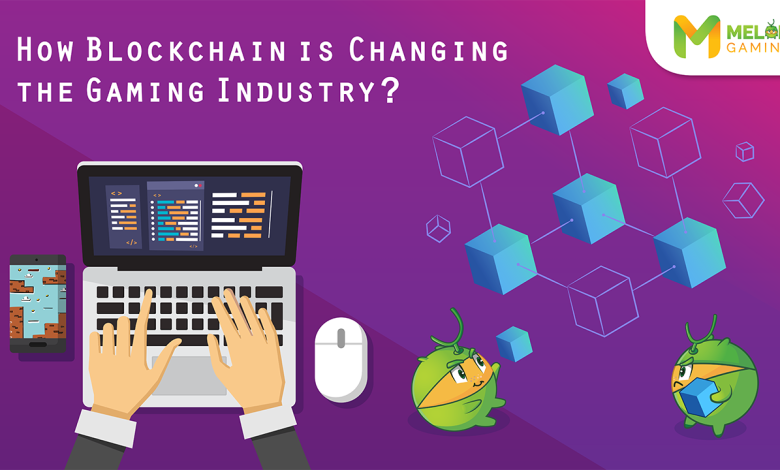How Blockchain is Changing the Gaming Industry

- Introduction to Blockchain Technology
- The Rise of Cryptocurrency in Gaming
- Enhancing Security and Transparency in Gaming
- Tokenization of In-Game Assets
- Decentralized Gaming Platforms
- Impact of Blockchain on In-Game Economies
Introduction to Blockchain Technology
Blockchain technology is revolutionizing the gaming industry by providing a secure and transparent way to track digital assets. This innovative technology allows for the creation of unique in-game items that players truly own, giving them the ability to buy, sell, and trade these assets with confidence. By utilizing blockchain, game developers can ensure the scarcity and authenticity of virtual goods, enhancing the overall gaming experience for users.
One of the key benefits of blockchain in gaming is the ability to create provably rare items, such as limited edition skins or weapons. These unique assets are stored on the blockchain, making it impossible to duplicate or counterfeit them. This not only adds value to the items but also creates a sense of exclusivity for players who own them. Additionally, blockchain technology enables players to verify the ownership and history of their in-game assets, providing a level of transparency that was previously unattainable.
Moreover, blockchain technology can facilitate secure and efficient transactions within games, allowing players to buy, sell, or trade assets without the need for intermediaries. This peer-to-peer system eliminates the risk of fraud or theft, as all transactions are recorded on the blockchain and cannot be altered. Players can have full control over their digital assets, knowing that they are protected by the decentralized nature of blockchain technology.
Overall, blockchain technology is reshaping the gaming industry by empowering players with true ownership of their in-game assets and creating new opportunities for developers to innovate. As more games adopt blockchain technology, we can expect to see a shift towards a more decentralized and player-centric gaming ecosystem. The potential for blockchain in gaming is vast, and its impact on the industry is only beginning to be realized.
The Rise of Cryptocurrency in Gaming
The rise of cryptocurrency in gaming has been a game-changer for the industry, offering new opportunities for players and developers alike. With the advent of blockchain technology, in-game assets can now be tokenized and traded securely on decentralized platforms. This has opened up a whole new world of possibilities for gamers, allowing them to truly own their virtual items and even make a profit from them.
One of the key benefits of using cryptocurrency in gaming is the ability to facilitate fast and secure transactions. By using blockchain technology, players can buy, sell, and trade in-game assets without the need for intermediaries. This not only speeds up the process but also reduces the risk of fraud and theft.
Furthermore, cryptocurrency in gaming has the potential to revolutionize the way games are monetized. Developers can now create unique in-game economies powered by digital currencies, allowing for new revenue streams and business models. This can lead to more sustainable and profitable games in the long run.
Overall, the rise of cryptocurrency in gaming is reshaping the industry in profound ways. As more developers and players embrace this technology, we can expect to see even more innovation and creativity in the world of gaming. The future looks bright for blockchain in gaming, and the possibilities are truly endless.
Enhancing Security and Transparency in Gaming
Blockchain technology is revolutionizing the gaming industry by enhancing security and transparency in gaming transactions. By utilizing blockchain, game developers can create secure and tamper-proof systems that protect players’ data and assets. This increased security helps to prevent fraud and hacking, providing players with peace of mind while engaging in online gaming activities.
Furthermore, blockchain technology allows for greater transparency in gaming operations. Through the use of smart contracts, game developers can create verifiable and immutable records of in-game transactions, ensuring that all players have access to accurate and up-to-date information. This transparency helps to build trust among players and developers, fostering a more positive gaming environment.
Overall, the integration of blockchain technology in the gaming industry is leading to a more secure and transparent gaming experience for players. With the ability to verify transactions and protect data, blockchain is changing the way games are developed and played, creating a more trustworthy and enjoyable gaming ecosystem for all involved.
Tokenization of In-Game Assets
Tokenization of in-game assets is a revolutionary concept that is transforming the gaming industry. By leveraging blockchain technology, game developers can create unique digital assets that players can own and trade securely. These assets are represented by tokens on the blockchain, which ensures transparency and immutability.
One of the key benefits of tokenizing in-game assets is that it gives players true ownership of their digital items. Traditionally, players would purchase in-game items or skins, but they were essentially renting them from the game developer. With tokenization, players have full control over their assets and can transfer or sell them as they see fit.
Furthermore, tokenization opens up new opportunities for players to monetize their gaming experience. Players can earn tokens by completing in-game challenges or by trading assets with other players. This creates a more dynamic and engaging gaming ecosystem where players are rewarded for their skills and contributions.
Another advantage of tokenizing in-game assets is the potential for cross-game compatibility. Since tokens are based on blockchain technology, they can be used across multiple games that support the same standard. This means that players can take their assets from one game to another, adding a new layer of interoperability to the gaming industry.
Decentralized Gaming Platforms
Decentralized gaming platforms are revolutionizing the gaming industry by leveraging blockchain technology to provide players with more control and ownership over their in-game assets. These platforms utilize smart contracts to ensure transparency and security, allowing players to trade, sell, and purchase in-game items without the need for intermediaries.
One of the key benefits of decentralized gaming platforms is the ability to create unique and rare digital assets that cannot be replicated or manipulated. This scarcity adds value to in-game items and creates a more immersive gaming experience for players. Additionally, blockchain technology enables cross-platform compatibility, allowing players to use their assets across different games and platforms.
By removing centralized control from game developers and publishers, decentralized gaming platforms empower players to have a greater say in the direction of the games they play. This shift towards player-centricity fosters a more inclusive and collaborative gaming community, where players can contribute to the development of games and shape the future of the industry.
Impact of Blockchain on In-Game Economies
Blockchain technology has had a significant impact on in-game economies within the gaming industry. By utilizing blockchain, game developers are able to create secure and transparent systems for managing virtual assets and transactions. This has led to a more efficient and trustworthy environment for players to buy, sell, and trade in-game items.
One of the key benefits of blockchain in gaming is the ability to verify the scarcity and ownership of digital assets. This means that players can have true ownership of their in-game items, as they are stored on the blockchain and cannot be duplicated or manipulated. This has opened up new opportunities for players to monetize their gaming experience by selling rare items for real money.
Additionally, blockchain technology has enabled the implementation of smart contracts in games, which are self-executing contracts with the terms of the agreement directly written into code. This allows for automated and secure transactions between players, such as the exchange of in-game currency or items. Smart contracts help to reduce the risk of fraud and ensure that all parties involved in a transaction uphold their end of the deal.
Overall, the integration of blockchain technology in gaming has revolutionized in-game economies by providing a more secure, transparent, and efficient system for managing virtual assets and transactions. This has created new opportunities for players to engage with games on a deeper level and has the potential to reshape the gaming industry as a whole.



